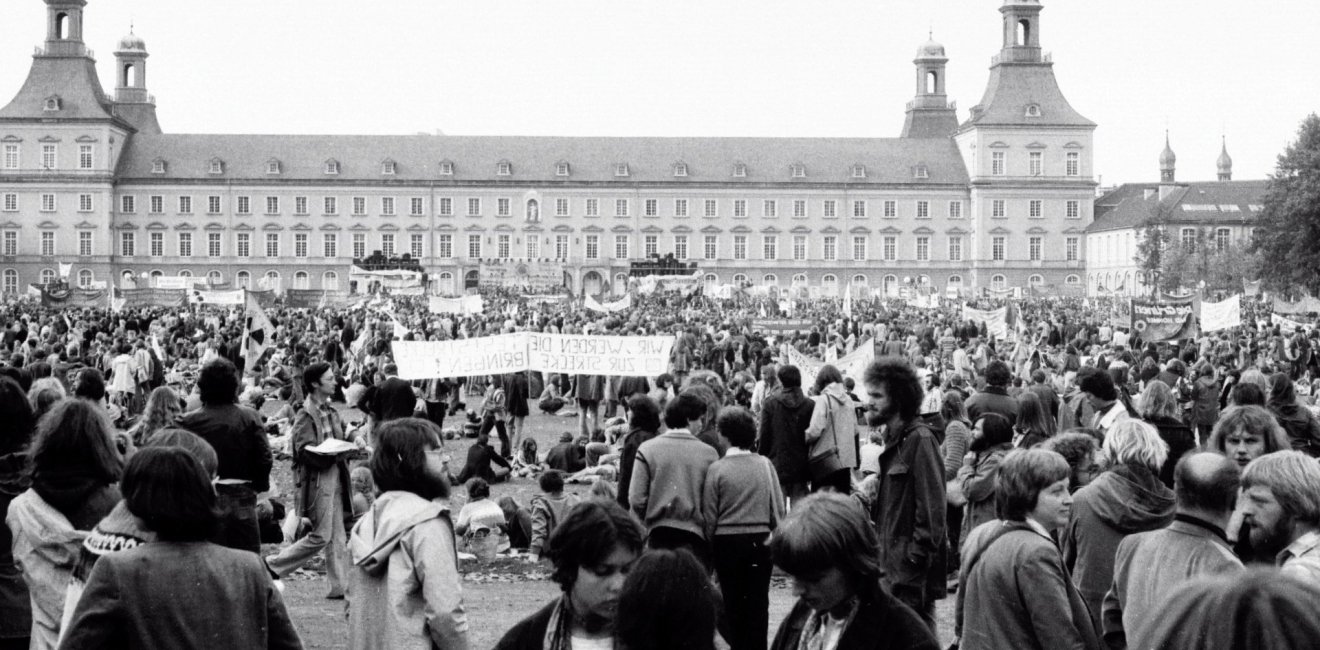Call for Papers - Global Histories of Anti-Nuclear and Peace Activism in the Late Cold War
Call for papers for a two-day workshop at the London School of Economics, Friday 22 and Saturday 23 May 2020.
Call for papers for a two-day workshop at the London School of Economics, Friday 22 and Saturday 23 May 2020.

One of the most dynamic areas within the historiography of the Cold War and social movement studies in recent years has been the study of peace and anti-nuclear activism in the last decades of the Cold War. Existing scholarship in this area has for the most part focused on the largest countries within NATO, notably the US, the UK, and West Germany. This conference aims to broaden the scope beyond the North Atlantic by inviting papers on protest that opposes various aspects of nuclear technologies in any country, and to widen the periodisation beyond the Eurocentric account that solely focuses on the Euromissile crisis. One of the objectives of the conference is to bring together historians, political scientists, sociologists and academics from cultural and media studies who are conducting empirical research on peace protests globally during the late Cold War in order to tell a global story of anti-nuclear and peace activism.
Possible topics could include local and transnational opposition to nuclear weapons and nuclear energy programmes in countries such as South Africa, Argentina, Brazil, Israel and Pakistan, as well as forms of opposition to nuclear weapons in nuclear-armed states such as India and China, or in Japan. Opposition to civilian uses of nuclear technology and/or the links between anti-nuclear and environmental movements are also encouraged. We also welcome papers addressing anti-nuclear and peace activism in NATO countries, in the Eastern bloc, and within the Non-Aligned Movement and among neutral states. Possible questions to consider might include:
An abstract of no more than 300 words along with a two-page CV should be submitted to Dr Luc-André Brunet and Dr Eirini Karamouzi by no later than 21 February 2020: lucandre.brunet@open.ac.uk and e.karamouzi@sheffield.ac.uk.
This conference is co-organised by the LSE IDEAS Peace and Security Project, The Open University, the University of Sheffield, Università Roma Tre, the Woodrow Wilson Center, and the Nuclear Proliferation International History Project. We have funds available to assist with international travel to London to attend the conference.

A leader in making key foreign policy records accessible and fostering informed scholarship, analysis, and discussion on international affairs, past and present. Read more


The Nuclear Proliferation International History Project is a global network of individuals and institutions engaged in the study of international nuclear history through archival documents, oral history interviews, and other empirical sources. Read more



